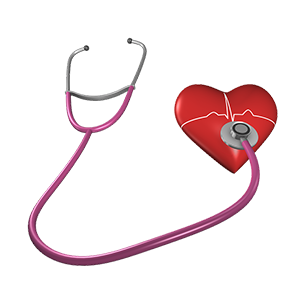Raise Awareness During September, Cholesterol Education Month
Around 65 million Americans have high cholesterol, a condition that can affect anyone from young kids to senior adults. September is Cholesterol Education Month, and you can improve your health when you understand the definition of cholesterol and the best ways to prevent high cholesterol. 
What is Cholesterol?
Cholesterol circulates in your blood and resembles wax or fat. It supports metabolic processes, such as cell membrane stabilization, vitamin D formation, and steroid hormone and bile acid production. It While your body makes cholesterol naturally, it’s also found in food. If you make or consume more cholesterol than your body needs, the excess will accumulate in your arteries and narrow those passageways, which could increase your heart disease and stroke risk.
You have good cholesterol (HDL – high-density lipoprotein), bad cholesterol (LDL – low-density lipoprotein) and triglycerides. The lipoproteins carry cholesterol to and from your body’s cells.
- HDL – Removes bad cholesterol as it flows through your bloodstream.
- LDL – Becomes part of the plaque that lines your arteries.
Your cholesterol levels can depend on several factors, including a family history of heart disease, diabetes, or high blood pressure. Smoking, alcohol consumption, stress, and your weight can also affect cholesterol levels.
What are Normal Cholesterol Levels?
The ideal cholesterol level is under 170 mg/dL. Your LDL level should be under 110 mg/dL, and your HDL level should be over 35. Aim for a triglyceride level of under 150 mg/dL. While these numbers are confusing, your doctor can explain them and help you achieve healthy levels.
How do you know if you have High Cholesterol?
You might have high cholesterol and not know it. Visit your doctor for a blood test that shows your cholesterol levels. Typically, adults over the age of 20 should have their cholesterol checked every five years. High-risk children should have their cholesterol checked regularly, too.
How is High Cholesterol Treated?
Often, lifestyle changes can reduce your cholesterol levels. Your doctor may recommend exercise and dietary improvements, such as:
- Engage in two hours and 30 minutes of moderate exercise or one hour and 15 minutes of vigorous physical activity each week.
- Eat more high-fiber food, including fruits, vegetables and whole grains.
- Limit the amount of saturated fat and sugar in the foods and beverages you consume.
- Maintain a healthy weight.
- Quit smoking and lower your alcohol intake.
- Reduce stress.
Your doctor may prescribe medication, too. Statins reduce the amount of cholesterol your body makes and can lower your bad cholesterol levels.
This month, raise your cholesterol awareness levels. Visit your doctor for a cholesterol check, and discuss the steps you can take to achieve a healthy lifestyle that improves your health now and into the future

Comments
Not found any comments yet.